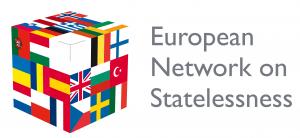EGN hosted another thematic meeting. This time the subject was Statelessness and Guardianship. The meeting was led by the European Network on Statelessness (ENS).
We are very thankful for the fruitful discussion that we had on guardianship and childhood statelessness, with very interesting contributions from many of the members and partners. Please see below a list of useful resources on childhood statelessness provided by ENS:
- Statelessness Index – online tool that assesses how countries in Europe protect stateless people and what they are doing to prevent and reduce statelessness.
- Stateless Journeys knowledge hub, particularly the section ‘Resources’ – hosts information and tools about how statelessness affects people’s journeys, including country of origin information, information about relevant stakeholders, case studies outlining the main issues, country briefings, webinars, information leaflets, and more.
- Dedicated website on the World’s Stateless Children hosted by the Institute on Statelessness and Inclusion – which also includes a full report on this topic with information by region, a specific section on migration and childhood statelessness.
- Report No child should be stateless: Ensuring the right to a nationality for children in migration in Europe – available in English, French, German, Greek, Spanish and Italian.
- UNHCR Guidelines on Statelessness no. 4: Ensuring Every Child’s Right to Acquire a Nationality – although the guidelines to do not have a particular section on guardianship, they address a number of rights and responsibilities to be taken into consideration by guardians.
- One-page infographics on What does it mean to be stateless? and Why do children become stateless? – also available in multiple languages.
- Webinar “No child should be stateless” – particularly for those that were unable to join the meeting last week.
- ENS main website – with further resources and the possibility to filter them by theme (namely “ending childhood statelessness”).

